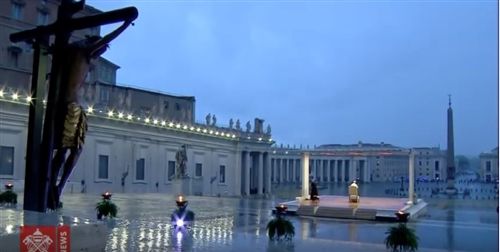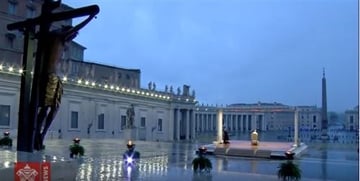Inside King's-Edgehill School

It happened late one afternoon
 It seems strange to be in the Chapel without all of you physically present, but the deeper point of Chapel is how we are connected spiritually through the ways in which we think and pray for one another. What we wrestle with in Chapel, we wrestle with in our global world. Something has happened, “late one afternoon” in this story; late in December, in one part of the world, and now everywhere. In both cases, we are in the story. In both cases, there is an ethical challenge, first, about sin itself, and second, about how we deal with human suffering; in short, how we care for one another in a suffering world.
It seems strange to be in the Chapel without all of you physically present, but the deeper point of Chapel is how we are connected spiritually through the ways in which we think and pray for one another. What we wrestle with in Chapel, we wrestle with in our global world. Something has happened, “late one afternoon” in this story; late in December, in one part of the world, and now everywhere. In both cases, we are in the story. In both cases, there is an ethical challenge, first, about sin itself, and second, about how we deal with human suffering; in short, how we care for one another in a suffering world.The two are not causally connected but they are related ethically since sin is about our failure to will the Good which is known in one way or another. How we deal with the sufferings of our humanity is an ethical consideration. Suffering in a religious view speaks to some form of disorder or imbalance in human experience. The present Covid-19 outbreak, apart from awakening compassion and care for others in our hearts, heads, and hands (washed!), should also move us to reflect upon the assumptions of our global culture and world and the assumptions of our own lives. That will all be to the good in terms of thinking more carefully, perhaps, about the extent of global travel and what that means environmentally and now what it means in terms of human lives; about the relation between the global and the local; about globalization in general and about our technocratic dependencies. Borders seem to matter in terms of social and political distancing. Such things remind us of the nature of our connections to one another. And so too with the story of the sin of David.
You have all heard of the ‘slippery slope argument’ and the ‘domino effect,’ about how one thing leads to another, about things going from bad to worse. You may even have realized that at times in your own lives. We return from the March break and, indeed, something has happened. You are not here in the same way and yet we are together in the intellectual and spiritual life of the School. We return to the story of David, but it is not David as hero but as sinner. Something happened. The lessons are there for us all. As the poet/preacher John Donne wonderfully puts it, “David shows us the slippery ways into sin … and the penitential ways out of sin.”
The Thursday reading is about the first; the Friday reading relates to the second. A marvelous story told with great craft and care, the story of David holds up a mirror to each of us, just as it is also a window opening us out to the wonder of God in the face of human sin. What happened “late one afternoon”? David, walking in his roof-top garden in Jerusalem sees a beautiful woman bathing. She is Bathsheba, the wife of Uriah the Hittite, a soldier fighting for David against the Ammonites. He sees her. He desires her. He acquires her. He has sex with her. He impregnates her. Note the progression from what we see to what we desire to what we possess.
Think about it for a moment and you realize that this story shows the dynamic of the ethics of the universal moral code of our humanity, the Ten Commandments. First, David covets - desires - another man’s wife. Secondly, David commits adultery. But that is not all. She is pregnant. What next? David seeks to cover it up, recalling Uriah from the battle, sending him home to his wife in the hopes that her pregnancy can be attributed to her husband. It is an act of deception through a misuse of reason and speech. But Uriah holds to the warrior code and sleeps at the door of the King’s house, the King whom he serves. He is acting out of solidarity with his fellow soldiers. David then tries to get him drunk in the hopes that he will go to Bathsheba; his plan is foiled yet again. In desperation, David conspires to have Joab place Uriah at the forefront of the battle where he will most surely be killed. Joab reports to David that “your servant Uriah the Hittite is dead also.” David covets Bathsheba; he commits adultery with her; he conspires to have Uriah killed. Such is the slippery slope of sin graphically and compellingly told. In a marvel of understatement, we are told that “the thing which David had done displeased the Lord.” Do you think?!
But the story of David does not end simply with his sin. How does David come to be convicted of his sin? How do we learn to become accountable for our actions? This is one of the great ethical questions. How do we learn? Sometimes, if not more often than not, through our mistakes and our sins. That is the great wonder of the parable of Nathan which serves to convict David of his sin, not by an accusing finger pointed at us by someone else but by us pointing fingers at ourselves; in short, by the awakening of our consciences to the truth of our actions and their consequences. Nathan the prophet tells a parable about a rich man taking the only lamb of a poor man to provide for a feast for a guest. David hears the story and “anger was kindled in him” and he pronounces judgement for “the man who has done this deserves to die” and must make recompense fourfold, “because he did this thing, and because he had no pity.” David has just convicted himself. Nathan, simply and profoundly, says, “You are the man.” This is what you have done. David sees himself in the parable, in the story.
David has been brought to realize his own sinfulness. As such he is awakened to the God whom he has betrayed. “Against thee only have I sinned, and done that which is evil in thy sight,” as the great penitential psalm of Lent (Ps. 51. 4), attributed to David’s repentance, wonderfully puts it. It is a profound point about how all sin is ultimately a betrayal of God’s goodness. He has, we may say, broken all of the commandments.
The story calls us to account for our actions at once individually and, perhaps, collectively. “Man looks on the outward appearance, but the Lord looks on the heart,” we were told about David at the beginning of the narrative. David is the kind of person who can learn from his sin and evil. Such is a kind of metanoia, a thinking after things, in this case, a thinking after our actions and their consequences. It is a salutary lesson about accountability and agency, something which we also confront in the global crisis which implicates all of us and which is greater than any of us. The ethical question is about what we learn and what we do, especially about how we learn to care for one another and for our suffering world. We can learn, it seems, through sin; we can learn, too, it seems, through suffering. We can learn to care about our actions and about one another. That is our challenge for our humanity.
Graduates of boarding schools are more self-confident and self-assured. They are also very prepared for the rigors of university life. To find out more, download this eBook.







